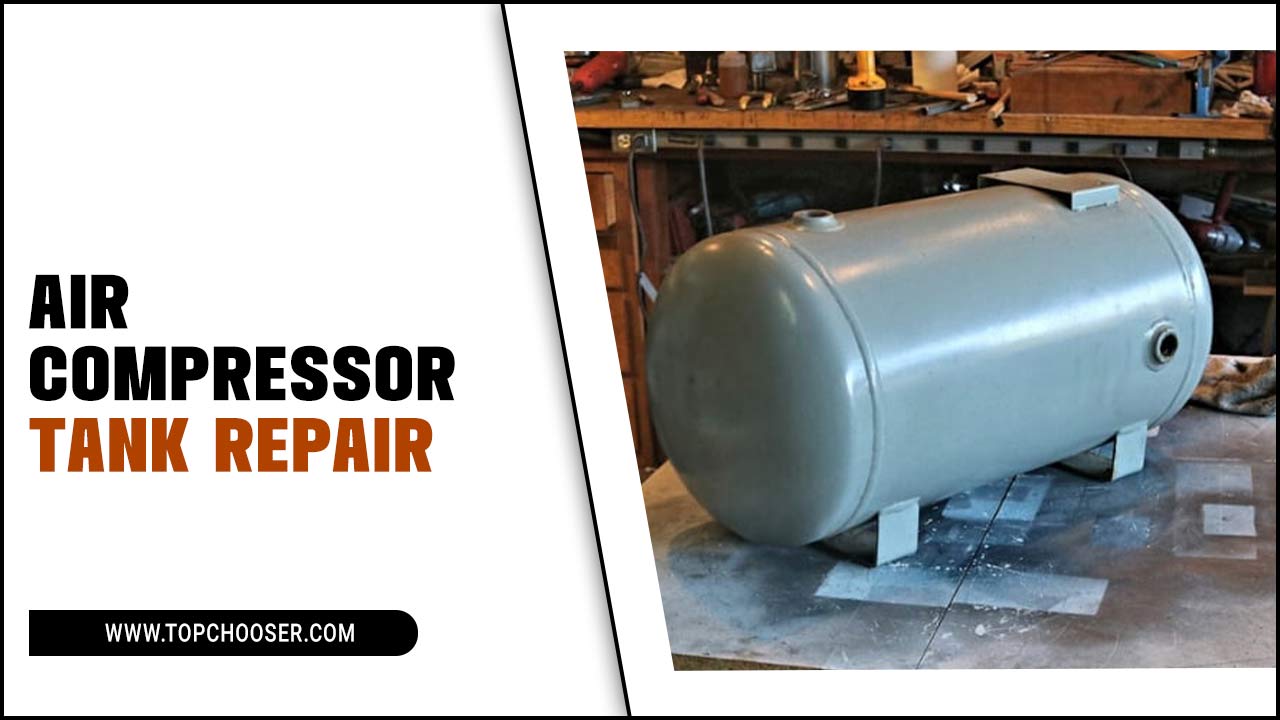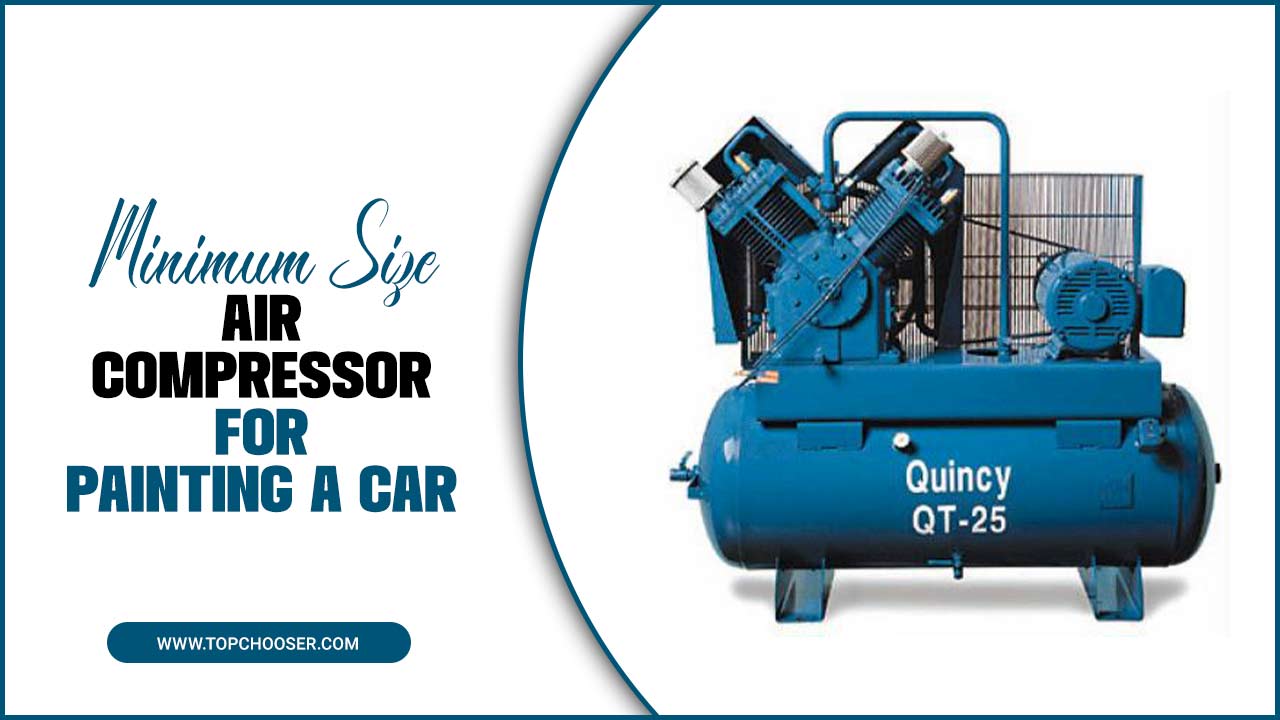Air compressor leaking oil is a common problem in various compressors used for different applications. This issue can occur for several reasons, such as worn-out seals, damaged gaskets, or overfilling the oil reservoir.
When the compressor is working, the oil can leak from different parts, and this can cause a range of issues, such as reduced efficiency, performance issues, and even damage to the compressor itself. Identifying the source of the oil leak can be challenging, and this can require a careful inspection of the compressor.
Once you have identified the source of the problem, you must take the necessary steps to fix the issue to prevent further damage and ensure that the compressor can function properly. If you have an air compressor leaking oil, it is essential to address the issue promptly to avoid potential safety hazards.
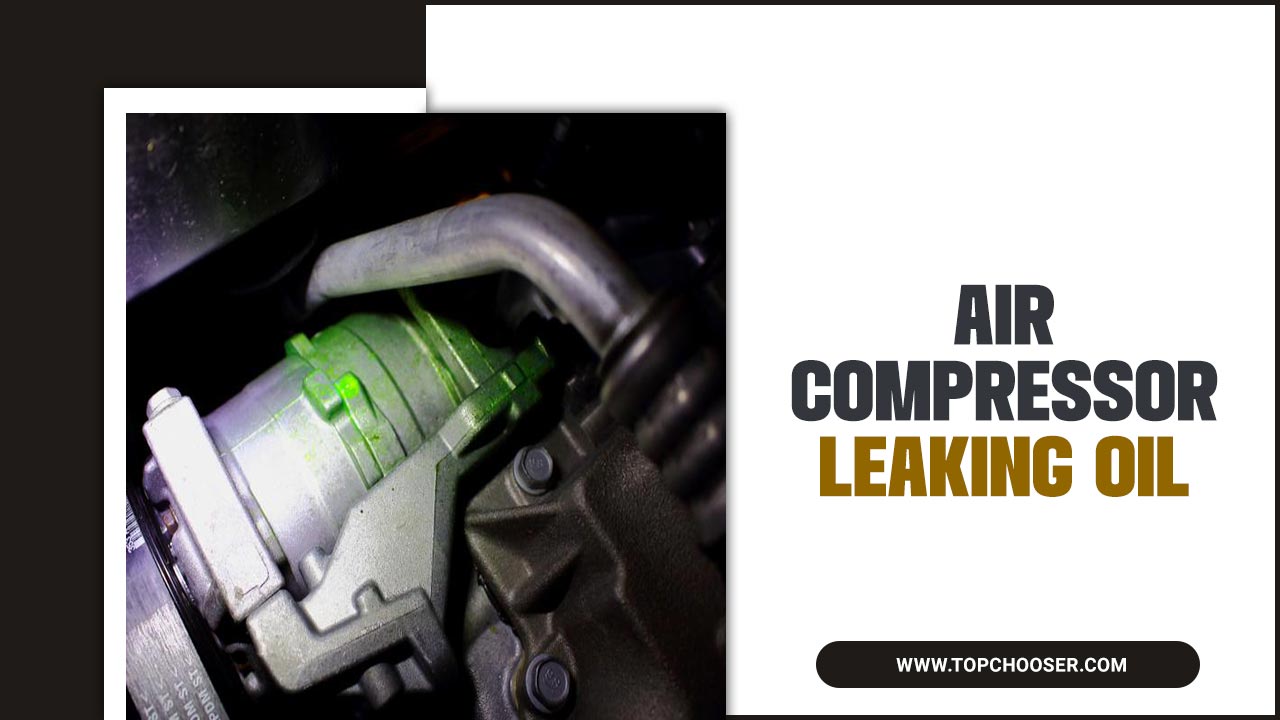
Common Causes Of Air Compressor Oil Leaks
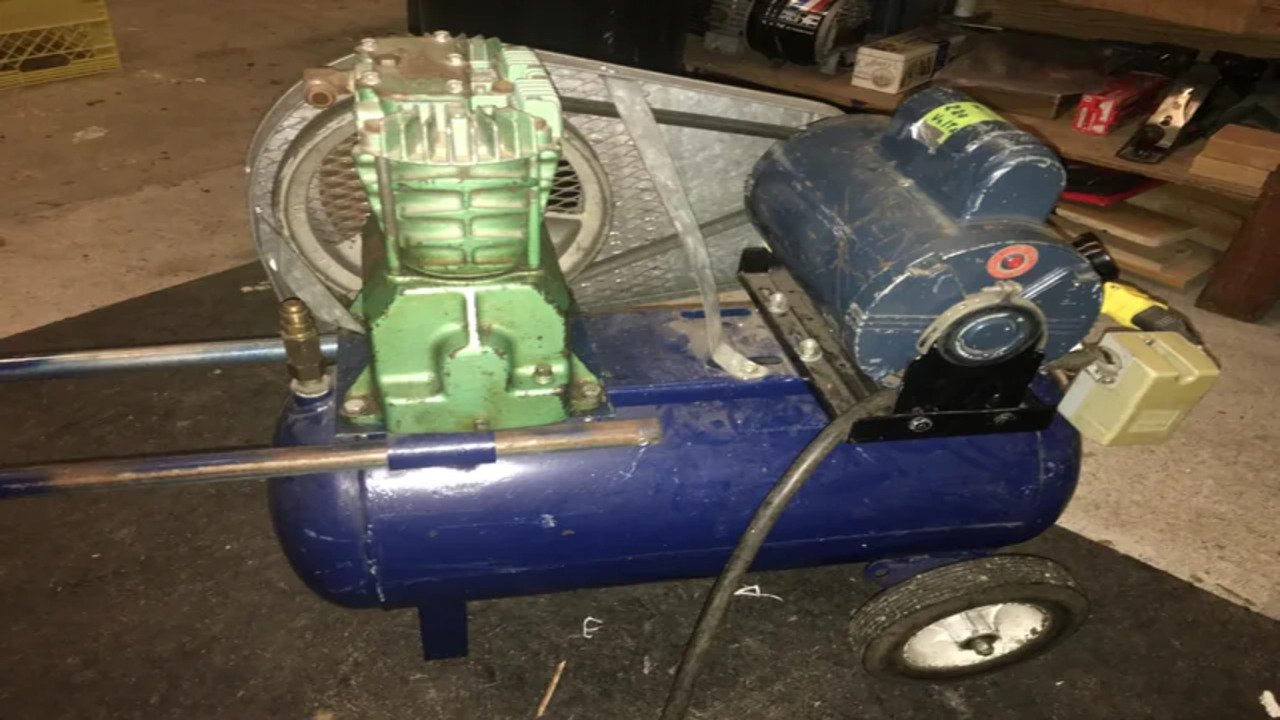
Air compressors are essential in many industries, from manufacturing to automotive repair. However, air compressors can develop oil leaks over time, which can be a sign of a more serious problem. Worn or damaged seals can cause air compressor oil leaks.
Another possible cause is a loose oil drain plug or oil filter. Other potential causes of air compressor oil leaks include a cracked or damaged oil pan, a damaged valve cover gasket, or a damaged cylinder head gasket. In some cases, the compressor may also be overfilled with oil, which can cause it to leak out of various components.
Tools And Equipment Needed For Inspecting An Oil Leak
Suppose you are unsure about any aspect of the inspection or lack experience in dealing with air compressor issues. In that case, it’s best to seek guidance from a qualified technician or compressor specialist. Inspecting an oil leak requires some essential tools and equipment to properly identify the source and extent of the leakage. Here’s a list of the tools and equipment needed:
- Flashlight: A reliable flashlight will help you illuminate hard-to-reach areas and dark spots where the oil leak might occur.
- Safety Gear: Wear appropriate safety gear, such as safety goggles and gloves, to protect yourself from any potential hazards during the inspection.
- Drip Tray or Cardboard: Placing a drip tray or cardboard under the compressor will help catch any dripping oil and prevent it from spreading.
- Clean Cloth or Paper Towels: Use these to wipe away any existing oil residue, making it easier to spot fresh leaks during the inspection.
- Oil Leak Detection UV Dye (Optional): If you suspect a small or hard-to-find leak, an oil leak detection UV dye can be added to the compressor’s oil. When using a UV light, it will highlight the source of the leak with a fluorescent glow, making it easier to identify.
- Inspection Mirror: An inspection mirror with an extendable handle will allow you to see into tight and hidden spaces without contorting yourself.
- Leak Detection Spray (Optional): This spray can help identify air leaks that may be causing oil to escape.
How To Fix Air Compressor Leaking Oil
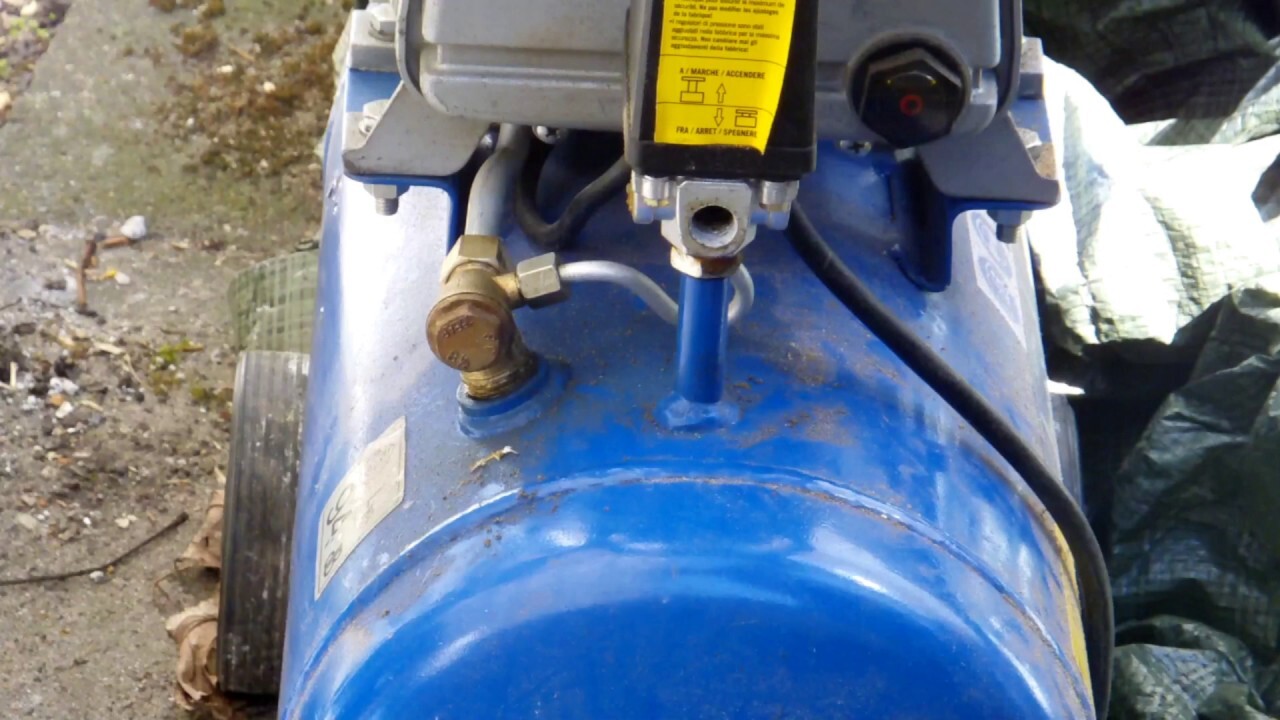
If your air compressor leaking oil, it is important to address the issue immediately. There are several reasons why an air compressor might leak oil, including a worn or damaged gasket, a loose drain plug, or excessive pressure within the compressor tank. Whatever the cause, an oil leak can cause several problems if left unaddressed.
To prevent these issues, it is important to regularly inspect your air compressor for signs of oil leaks and address any issues as soon as they arise. By taking these steps, you can ensure that your air compressor operates safely and efficiently while minimizing the environmental impact of your operations. Here are step-by-step processes on how to fix air-compressor leaking oil.
Identify The Source Of The Oil Leak
If you notice your air compressor is leaking oil, the first step is to identify the source of the leak. Look for visible oil stains or puddles around the compressor, which can indicate the general area of the problem. Once located, inspect the components in that area, such as the oil filter, gaskets, and seals, for any visible damage or wear. Tighten loose components, and clean the surrounding area for a clearer view. Identifying the source of the oil leak is crucial, as it allows you to target the specific issue and apply the appropriate fix.
Drain The Oil From The Compressor
Draining the oil is essential to address an air compressor’s oil leak. Start by turning off the compressor and disconnecting it from the power source to ensure safety. Locate the oil drain plug, typically positioned at the bottom of the compressor, and place a suitable container beneath it to catch the oil.
Loosen the plug and let the oil drain completely. Once drained, inspect the oil for any signs of contamination or unusual particles. Properly disposing of the old oil is crucial, and after the fix, refill the compressor with the recommended oil type and quantity.
Remove The Oil Filler Cap And Clean The Area Around It
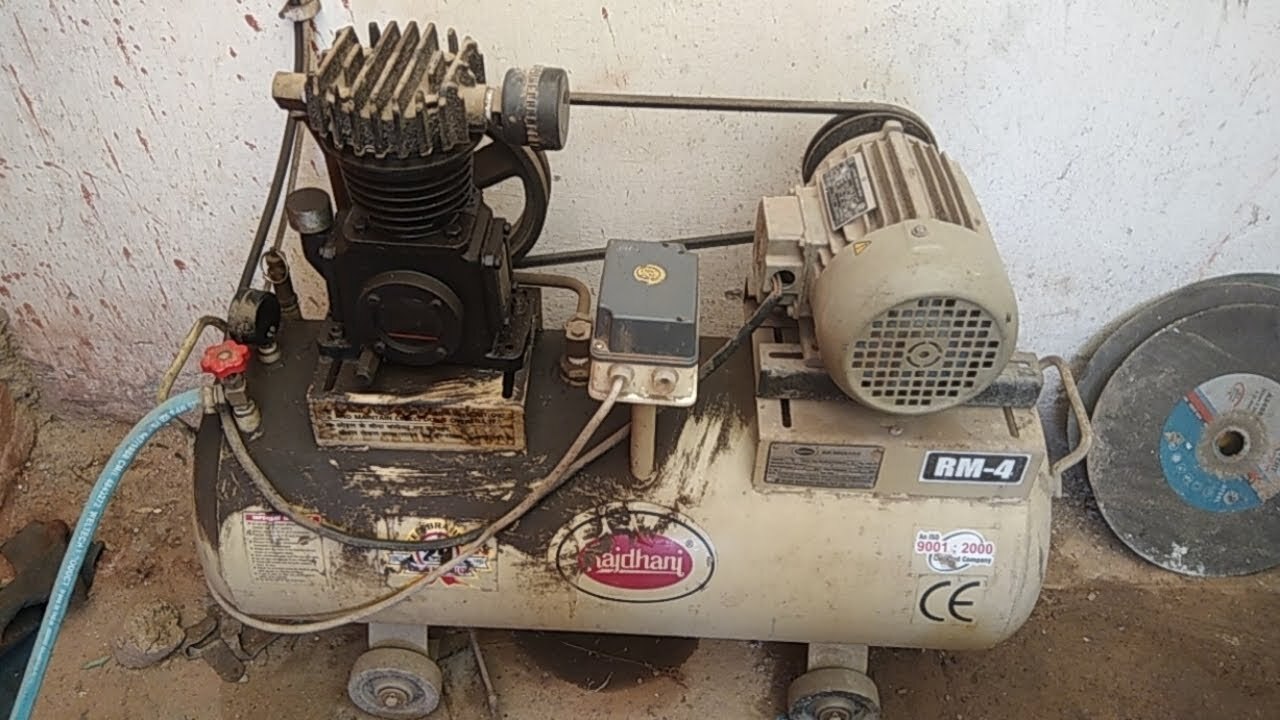
Removing the oil filler cap and cleaning the area around it is crucial to fix an oil leak in your air compressor. Dirt or debris around the cap can lead to poor sealing and potential leaks. Remove the oil filler cap carefully with the compressor turned off and unplugged.
Use a clean cloth to wipe the cap and the surrounding area thoroughly. Inspect the cap for any signs of damage, and if necessary, replace it with a suitable new one. Cleaning the oil filler area ensures a proper seal when the compressor is back in operation.
Inspect The Oil Filter For Any Damage Or Clogs
During the air compressor oil leak fix, it’s essential to inspect the oil filter for any damage or clogs. The oil filter prevents contaminants from circulating in the compressor’s oil; if it’s compromised, it can lead to leaks. Remove the oil filter and examine it closely.
Look for signs of damage, such as cracks or holes, and check for blockages that might hinder proper oil flow. If the oil filter shows any signs of wear or is clogged, replacing it with a new, compatible filter is crucial to ensure optimal compressor performance.
Replace The Oil Filter If Needed
When addressing an air compressor oil leak, if the oil filter is damaged or clogged, replacing it is essential. A compromised filter can lead to contaminants in the oil, reduced efficiency, and potential damage to the compressor.
After inspecting the old filter and identifying any issues, choose a replacement filter that matches the compressor’s specifications. Carefully install the new filter and ensure it is correctly seated to prevent leaks. Regularly replacing the oil filter as part of maintenance will contribute to the compressor’s longevity and smooth operation.
Check The Gaskets And Seals For Any Cracks Or Damage
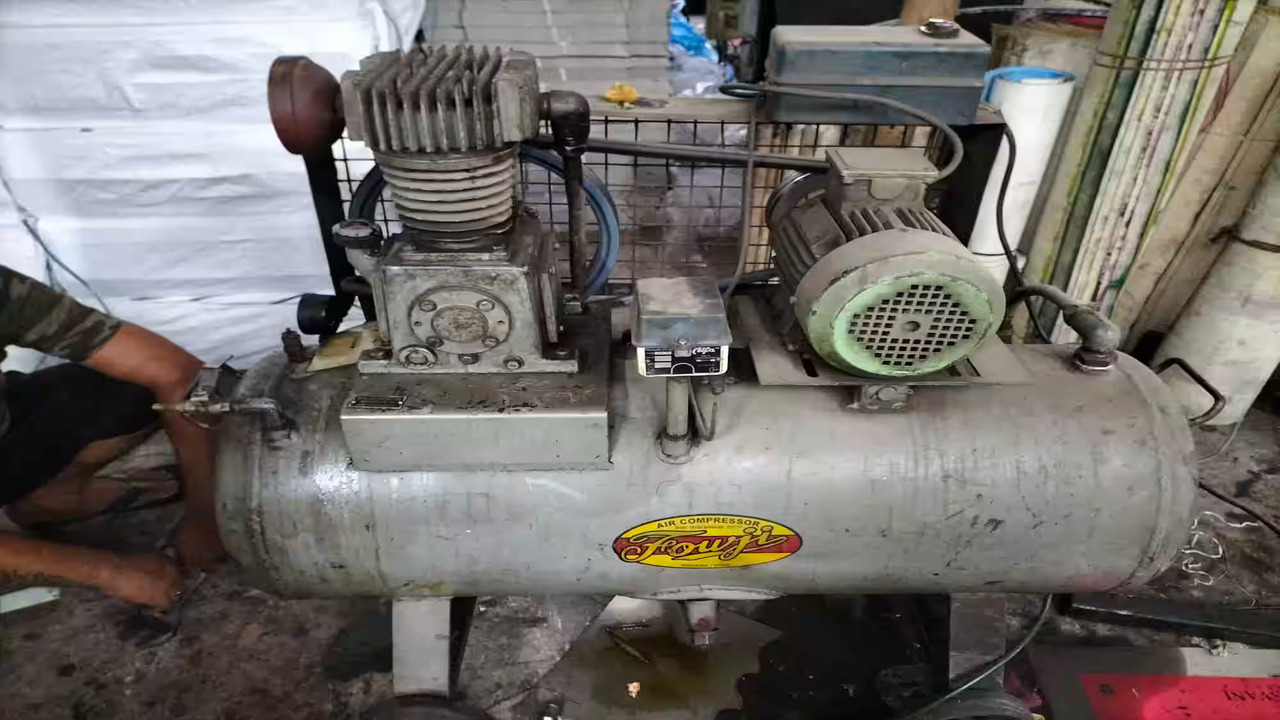
Gaskets and seals play a critical role in preventing air compressor oil leaks. Over time, they may deteriorate, crack, or damage, causing oil to escape. Inspect all gaskets and seals around the compressor as part of the fix. Look for visible signs of wear, such as cracks or deformities. If faults are found, replace the damaged gaskets and seals with suitable replacements. Addressing faulty gaskets and seals promptly will help maintain the compressor’s efficiency and prevent further oil leaks.
Replace Any Damaged Gaskets Or Seals
Addressing damaged gaskets and seals is crucial when dealing with an air compressor oil leak. These components maintain a proper seal between various compressor parts, prevent oil leaks, and ensure efficient operation.
Carefully remove any damaged gaskets or seals, taking note of their positions. Replace them with new, compatible gaskets and seals. Lubricate the new components as necessary to facilitate proper sealing. Properly installed and functional gaskets and seals will help maintain the compressor’s performance and prevent potential oil leaks.
Refill The Compressor With Oil And Test It For Leaks
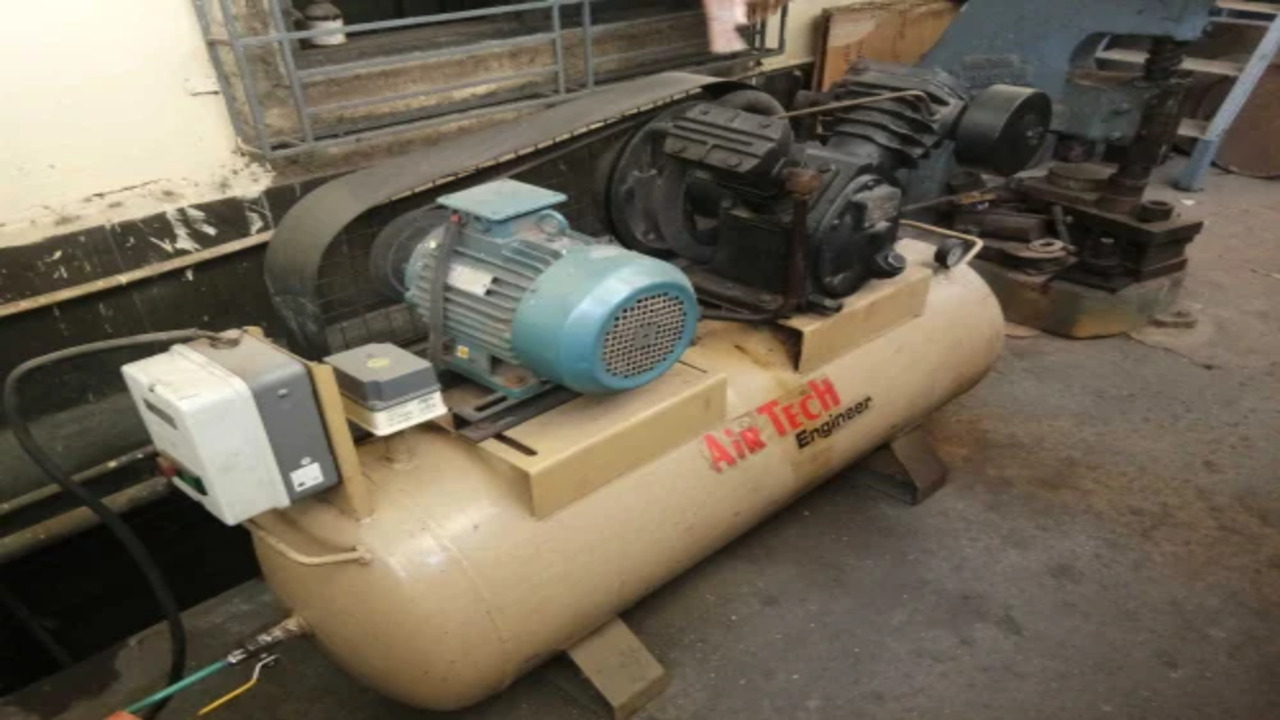
After completing the necessary repairs to fix an air compressor oil leak, it’s time to refill the compressor with fresh oil. Refer to the compressor’s manual to determine the correct oil type and required amount. Carefully pour the new oil into the reservoir until it reaches the recommended level.
Avoid overfilling, as it may lead to other issues. Once filled, securely close the oil filler cap. Before resuming regular operation, allow the compressor to run briefly and check for any signs of new oil leaks. Properly refilling the compressor with oil ensures optimal performance and longevity.
Conclusion
Dealing with an air compressor leaking oil can be frustrating and time-consuming. However, with careful attention to detail and a thorough understanding of the root cause of the issue, it is possible to achieve success in preventing further leaks and maintaining the proper functioning of the compressor.
By taking the necessary steps to address the issue, such as inspecting the compressor regularly and replacing any worn or damaged parts, users can expect to see a significant reduction in oil leaks and an increase in the overall performance of their compressor. With patience and persistence, overcoming this challenge and enjoying the many benefits of a well-maintained air compressor is possible.
FAQ’s
[rank_math_rich_snippet id=”s-8d5e12b0-ca44-4364-822d-660f56a27bbe”]

I am passionate about home engineering. I specialize in designing, installing, and maintaining heating, ventilation, and air conditioning systems. My goal is to help people stay comfortable in their homes all year long.





